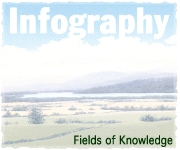
 | |
Urhobo People of Nigeria | |
The following sources are recommended by a professor whose research specialty is the Urhobo people of Nigeria's Niger Delta. |
· Ekeh, Peter P., ed. Urhobo Waado. The Urhobo Historical Society. http://www.waado.org/Contents.html
· Ekeh, Peter P., ed. 2005. Studies in Urhobo Culture. Urhobo Historical Society.
· Ekeh, Peter P., ed. 2007. History of the Urhobo People of Niger Delta. Urhobo Historical Society.
· Foss, Perkins, ed. 2004. Where Gods and Mortals Meet: Continuity and Renewal in Urhobo Art. Museum for African Art; Snoeck.
· Ikime, Obaro. 1977. The Member for Warri Province: The Life and Times of Chief Mukoro Mowoe of Warri, 1890-1948. Institute of African Studies. http://www.waado.org/Biographies/Mowoe/MowoeBiography_Ikime/TitlePage.html
· Otite, Onigu, ed. 2003. The Urhobo People. Shaneson C. I. Limited. First Edition, 1978.
· Darah, G.G. 2005. Battles of Songs: Udje Tradition of the Urhobo. Malthouse Press.
· Ekeh, Peter P. 2001. "Omonose Saga in Okpara Folk History." Urhobo Historical Society. http://urhobo.kinsfolk.com/ShortStories/Omonose/OmonoseSaga.html
· Ekeh, Peter P., ed. 2004. Warri City and British Colonial Rule in Western Niger Delta. Urhobo Historical Society.
· Ekeh, Peter P., ed. 2008. T.E.A. Salubi: Witness to British Colonial Rule in Urhoboland and Nigeria. Urhobo Historical Society.
· Erivwo, Samuel U. 1979. A History of Christianity in Nigeria: The Urhobo, the Isoko, and the Itsekiri. Daystar Press. http://www.waado.org/UrhoboCulture/Religion/Erivwo/HistoryOfChristianity/TitlePage.html
· Ikime, Obaro. 1969. Niger Delta Rivalry: Itsekiri-Urhobo Relations and the European Presence, 1884-1936. Longman.
· Ojaide, Tanure. 1998. Great Boys: An African Childhood. Africa World Press. An autobiographical account of growing up in rural Urhobo circumstances by a well-known African poet and writer.
· Ojaide, Tanure. 2003. Poetry, Performance, and Art: Udje Dance Songs of the Urhobo People. Carolina Academic Press. An informative discussion of a unique Urhobo tradition of dance and songs.
· Okpewho. Isidore. 1976. The Last Duty. Longman. Winner of the African Arts Prize for Literature, Okpewho's novel is set in the Urhobo countryside of of the Nigerian civil war era. Its drama takes place in "Urhukpe" ["lamp" in Urhobo language] and its nuances depict individuals' propensities toward evil acts against longstanding neighbors in extraordinary circumstances of civil strife.
· Okri, Ben. 1982. The Landscapes Within. Longman. Ben Okri, reputed to be one of the best African writers of his generation, uses his native Urhobo experiences in novels, and a number of the characters bear Urhobo names. The Landscapes Within, with its main self-possessed character "Omovo" ("Mine Only" in Urhobo language), particularly reveals a great deal about the dilemmas that many Urhobo culture bearers face in a complex modern world.
· Otite, O. 1973. Autonomy and Dependence: The Urhobo Kingdom of Okpe in Modern Nigeria. Northwestern University Press.
· Salubi, Adogbeji. 1958. "The Establishment of British Administration in the Urhobo Country (1891-1913)." Journal of the Historical Society of Nigeria, Volume 1, Number 3 (December): 184-209. http://www.waado.org/Biographies/Salubi/Publications/British_Urhobo.htm
· Salubi, Adogbeji. 1960. "The Origins of Sapele Township." Journal of the Historical Society of Nigeria, Volume 2, Number 1 (December): 115-135. http://www.waado.org/Biographies/Salubi/Publications/Sapele.htm
· Ukere, Anthony. Urhobo-English Dictionary. http://homepage.ntlworld.com/roger_blench/Language%20data/Urhobo%20dictionary%20web.pdf
"The Infography about the Urhobo People of Nigeria"
http://www.infography.com/content/278493523727.html
© 2009 Fields of Knowledge
Essex, Iowa 51638-4608 USA